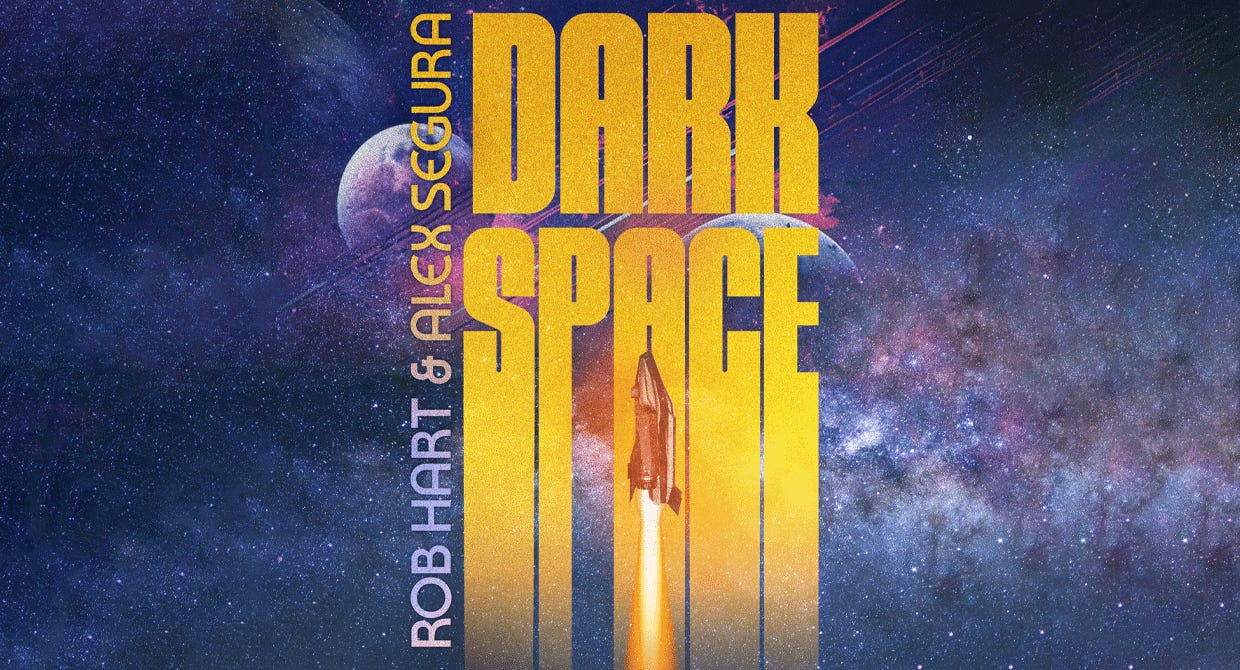Rob Hart and Alex Segura on Writing 'Dark Space'
What's the best way to collaborate on a novel?
Espionage is the world’s second-oldest profession, as the saying goes. It’ll also prove one of the most enduring, at least if you believe in the vision presented by Alex Segura and Rob Hart in their new sci-fi/spy novel “Dark Space,” released by Blackstone Publishing in October.
“Dark Space” takes place in a dystopian future where mankind’s colonies throughout the solar system are collapsing due to a combination of neglect, lack of resources, and stupidity. A colonist ship (the “Mosaic”) is dispatched to a new world several light-years away that could provide a fresh start for the species. But when an unexplained mishap wrecks the ship’s systems, it’s quickly apparent to the ship’s pilot, Carriles, as well as a spy back on the lunar colony, a burnout named Timony, that a massive and mysterious conspiracy is underway.
In my Q&A with Segura and Hart for CrimeReads, we talked about how the book mashes up the classic sci-fi of Asimov and Bradbury with the spycraft of John le Carré’s Smiley …
Keep reading with a 7-day free trial
Subscribe to Ink-Stained Wretch to keep reading this post and get 7 days of free access to the full post archives.




